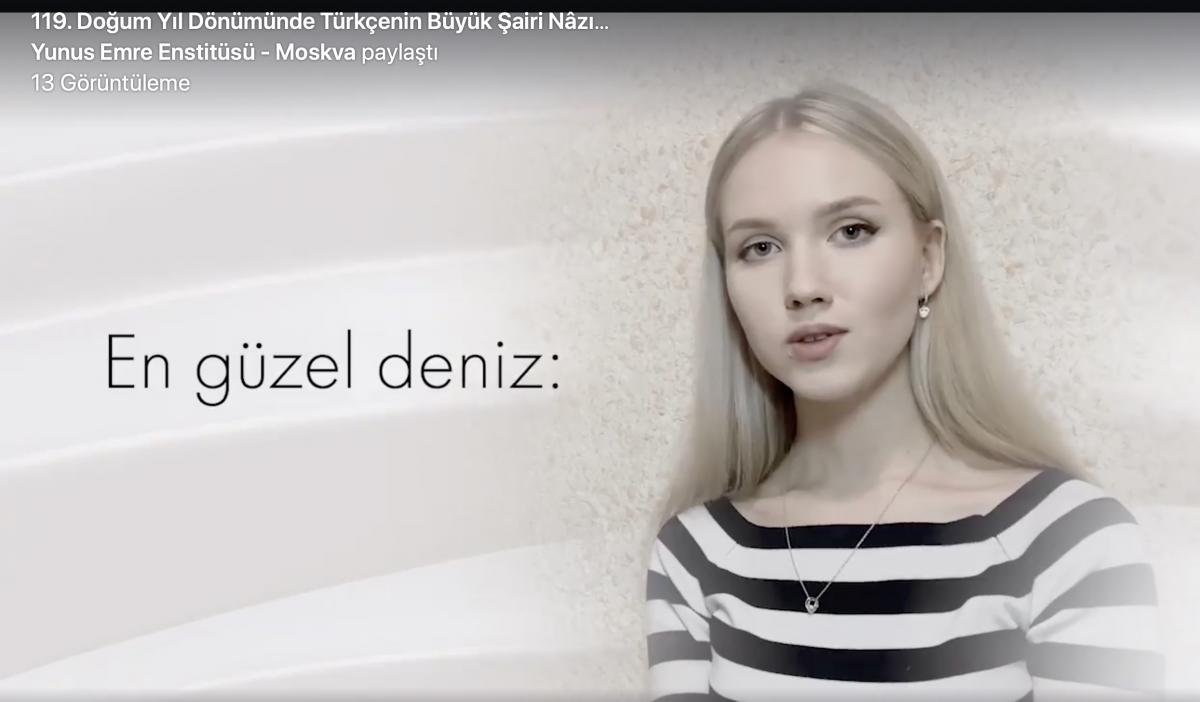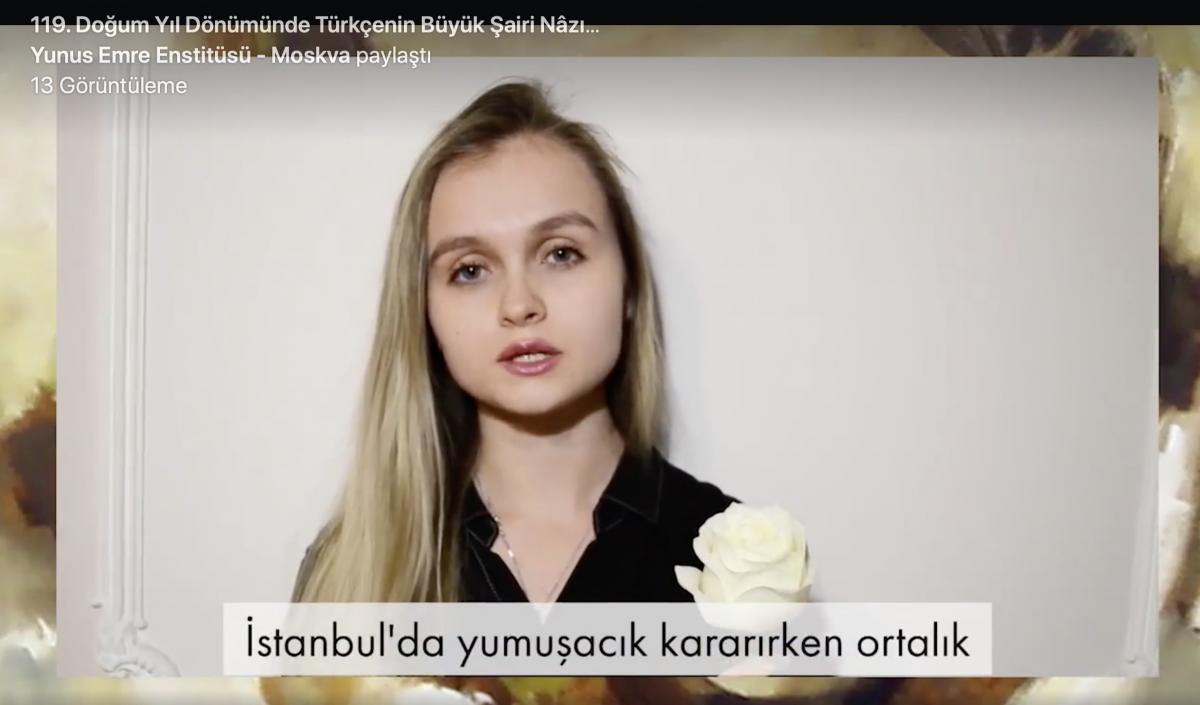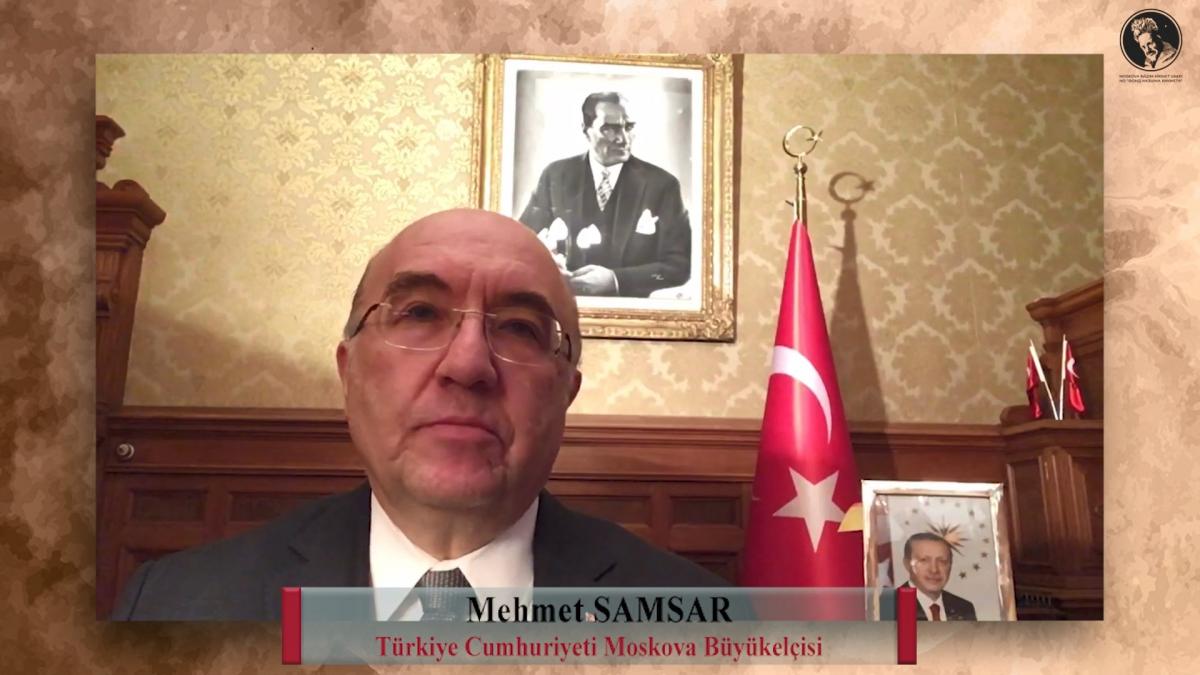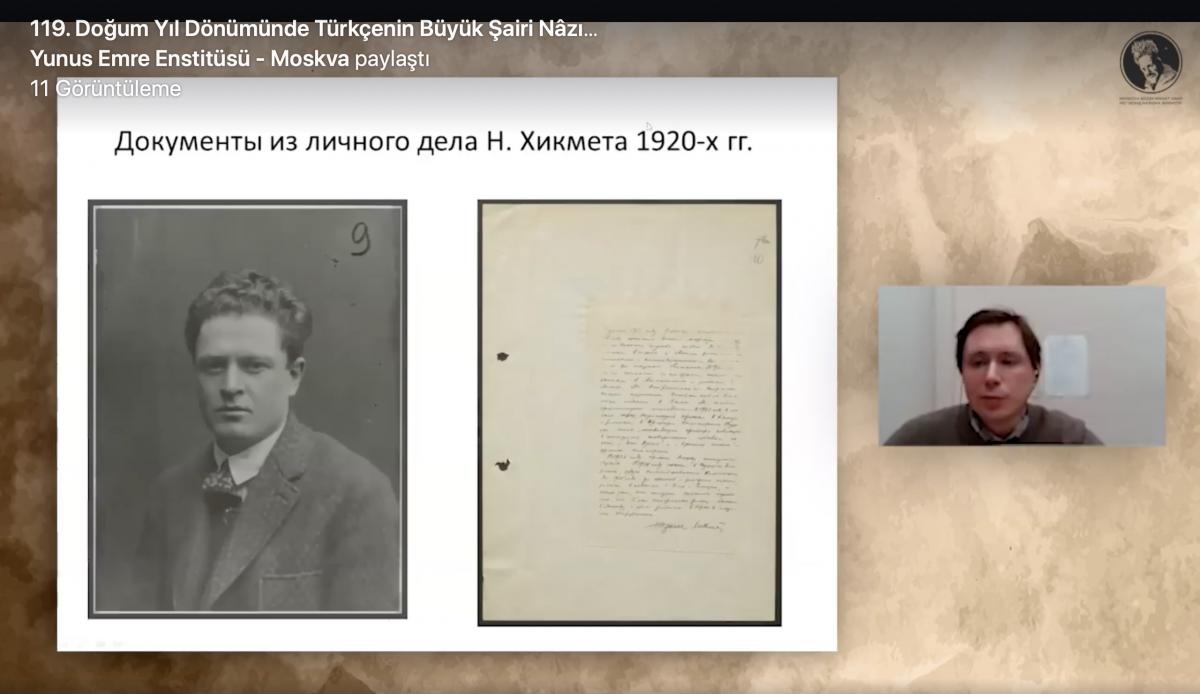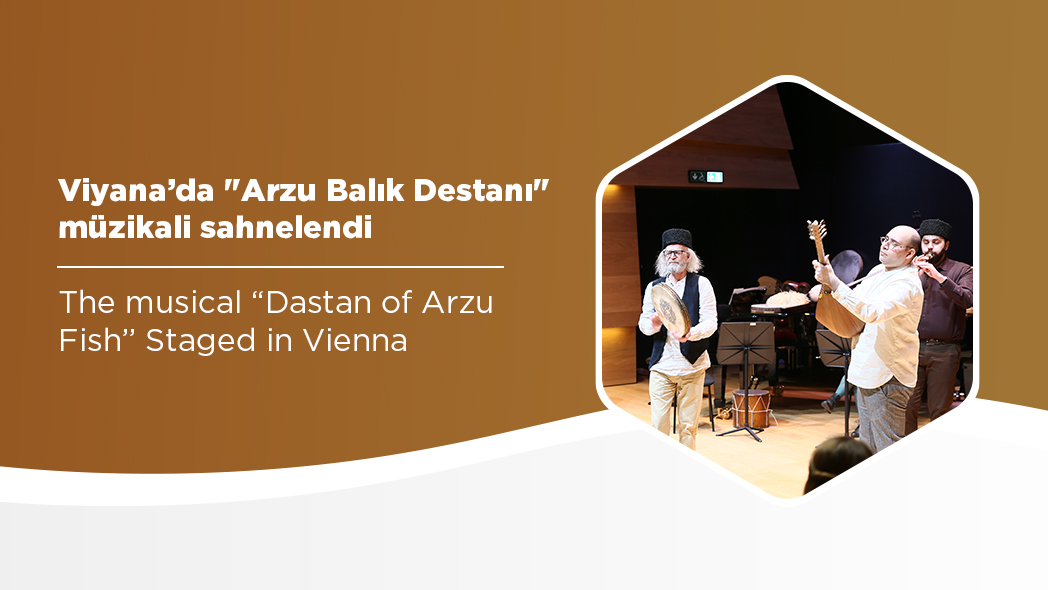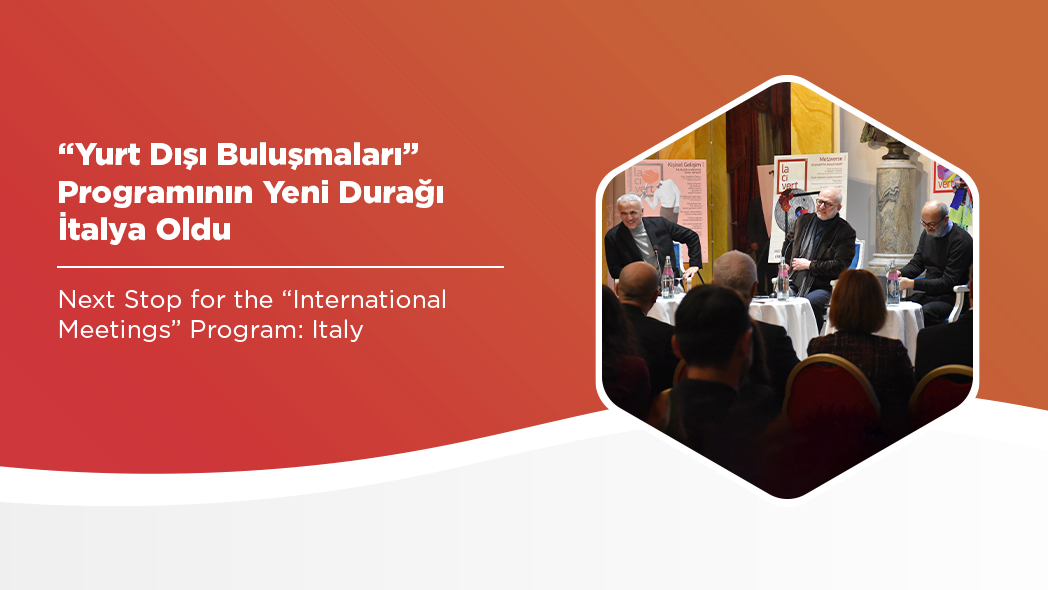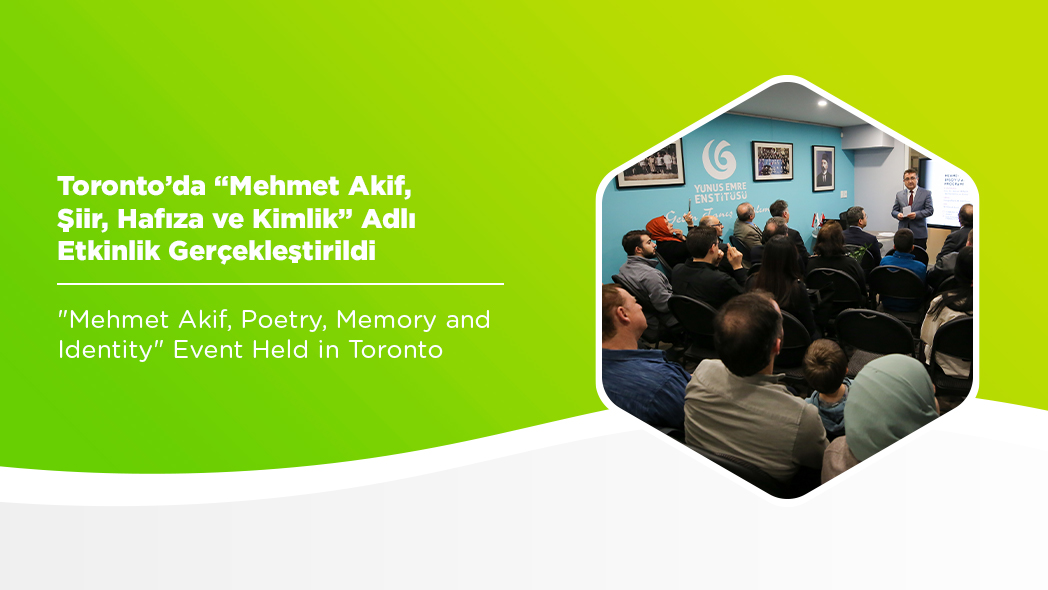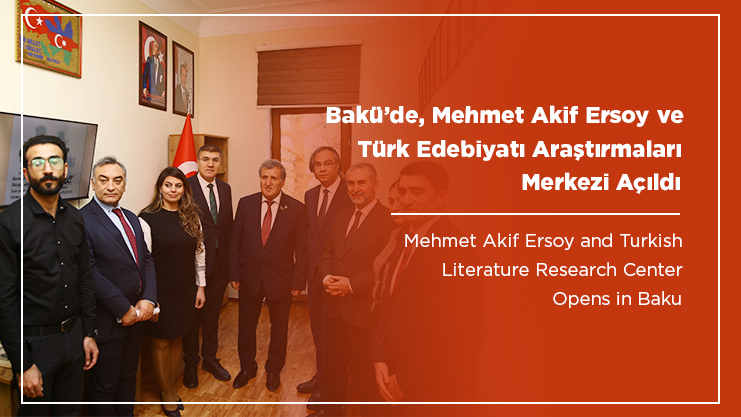Nâzım Hikmet was commemorated on his 119th birthday in Moscow
Moscow Yunus Emre Institute celebrated Nazım Hikmet’s 119th birthday with a special event. Turkey’s Ambassador to Moscow Mehmet Samsar, author and artist Zülfü Livaneli, actress Türkan Şoray, and academicians from Russia and Turkey attended the online event. Nazım Hikmet’s poems were read in Turkish and Russian, and various details were shared regarding the writer’s life.
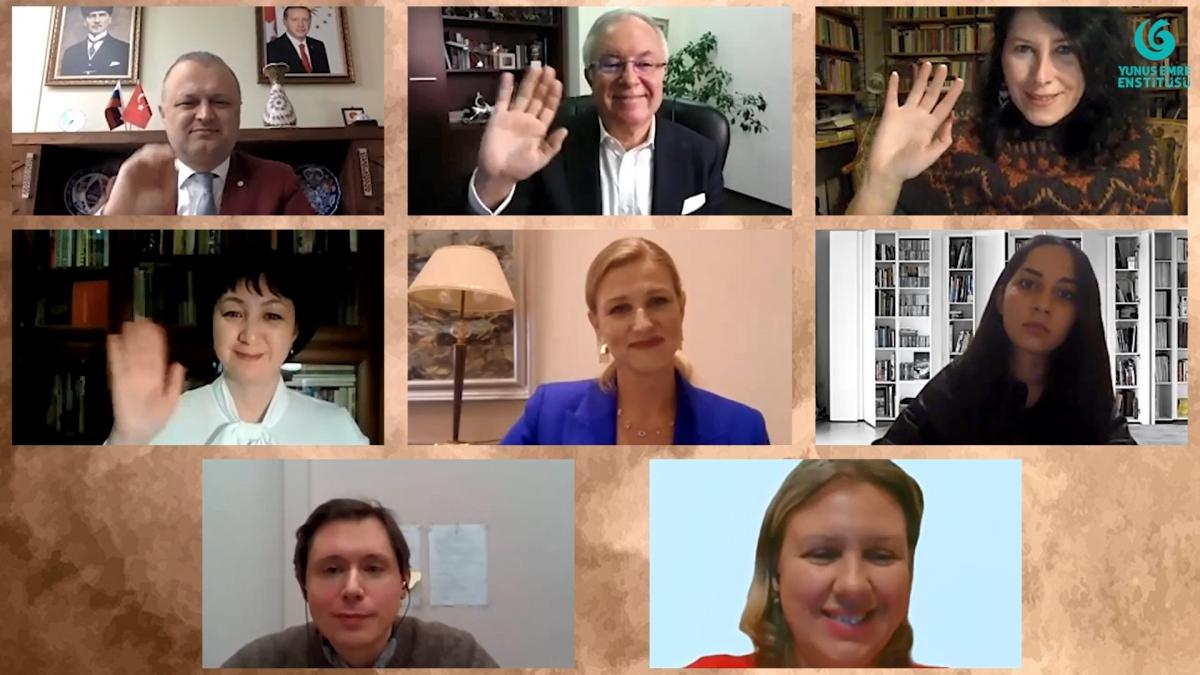
Moscow Yunus Emre Institute organized a memorable event for celebrating Nâzım Hikmet’s 119th birthday on December 25, 2020, with the participation of Turkey’s Ambassador to Moscow Mehmet Samsar, President of Yunus Emre Institute Ömer Özkan, President of Moscow Nâzım Hikmet Culture and Art Foundation Ali Galip Savaşır, as well as famous author and artist Zülfü Livaneli and actress Türkan “The Sultan (Queen)” Şoray.
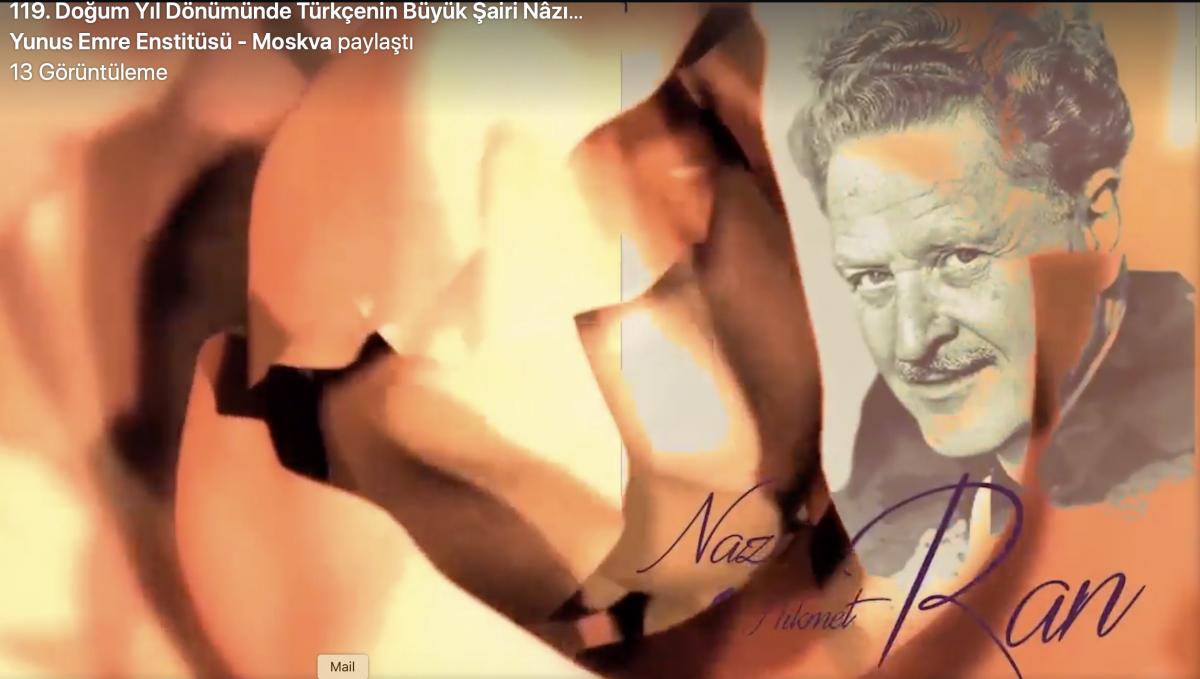 Many scientists and academicians also attended, who conducted studies in Turcology field. Dr. Daria Zhigulskaya, Prof. Alfina Sibgatullina from Russia Science Academy Orientalism Institute, Assoc. Prof. Aliya Suleymanova from St. Petersburg State University, Dr. Nilay Özer from Beykoz University, and Dr. Nikolay Lisenkov from Russian Social and Political History State Archive shared many details about the writer’s life and characteristics of his poetry, and they made informative and fascinating presentations about his role in the relation between Turkey and Russia.
Many scientists and academicians also attended, who conducted studies in Turcology field. Dr. Daria Zhigulskaya, Prof. Alfina Sibgatullina from Russia Science Academy Orientalism Institute, Assoc. Prof. Aliya Suleymanova from St. Petersburg State University, Dr. Nilay Özer from Beykoz University, and Dr. Nikolay Lisenkov from Russian Social and Political History State Archive shared many details about the writer’s life and characteristics of his poetry, and they made informative and fascinating presentations about his role in the relation between Turkey and Russia.
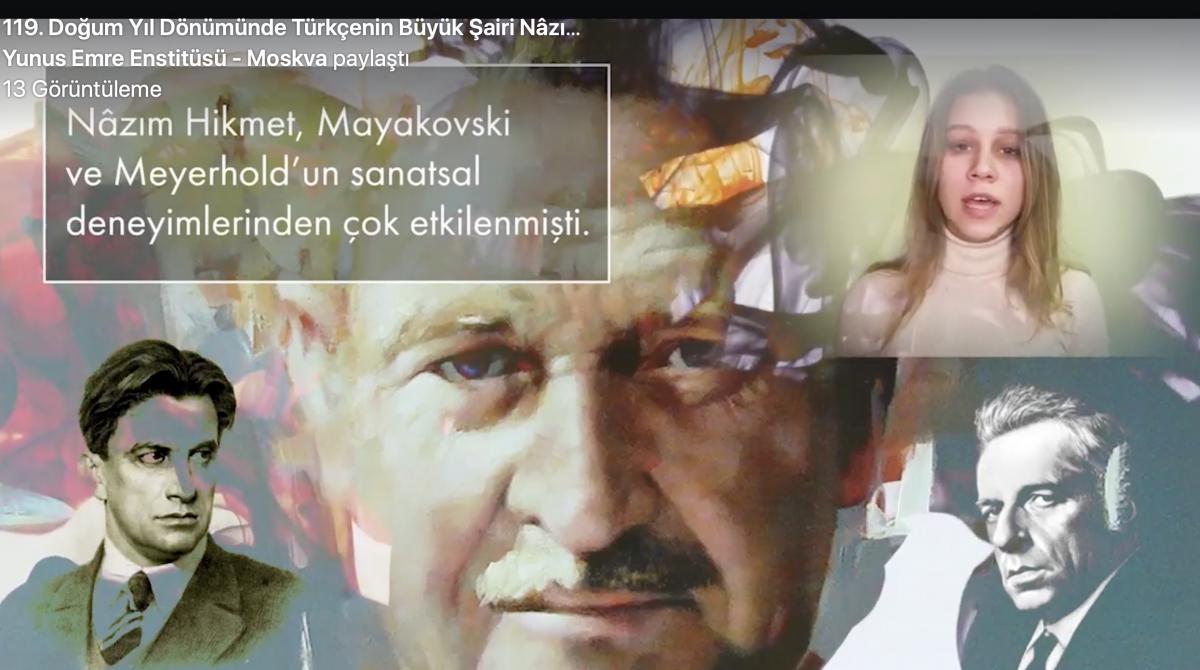
THEY READ NÂZIM HİKMET’S POEMS
|
Nâzım Hikmet’s 119th birthday was celebrated by reading his poems. |
The program was broadcasted both in Turkish and Russian. It started with the writer’s most famous poems, followed by his life story. Many of his works were read, including his poems such as “24 Eylül 1945”, “Bugün Pazar” “Seviyorum Seni” and “Gelin Canlar”.
The presentation stated that “The most important lesson that Nâzım has taught us is this: ‘We have to deal with the daily challenges and stand up straight despite everything because even after the darkest night, sun always rises.’”.
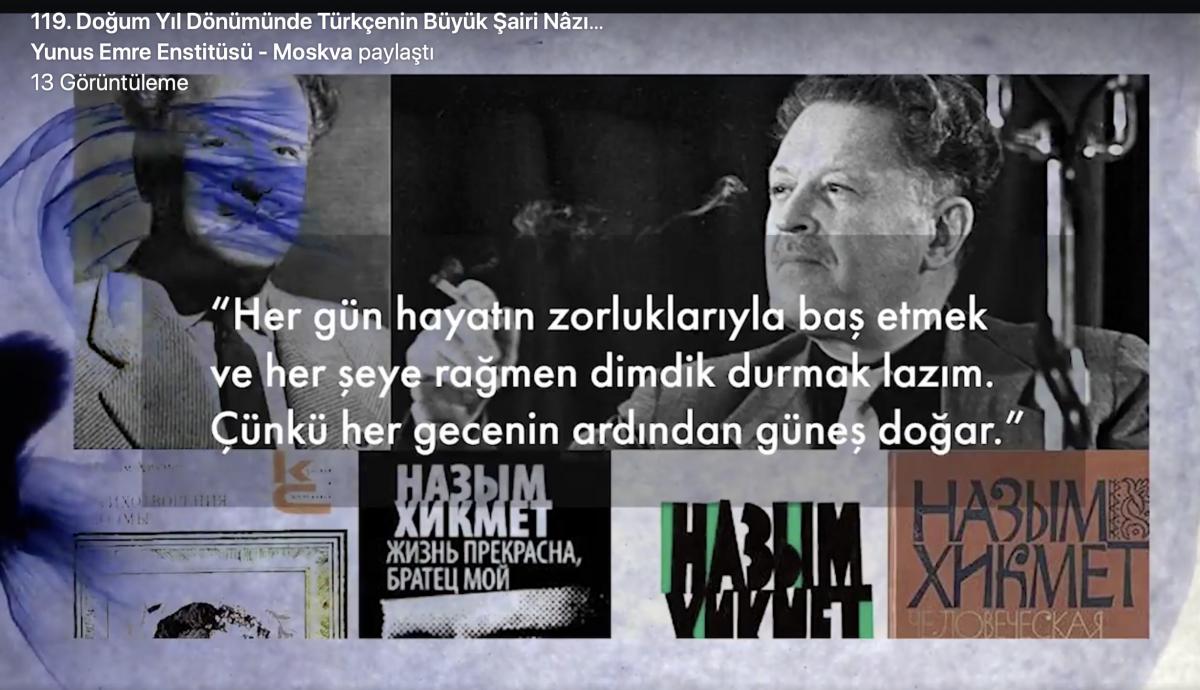
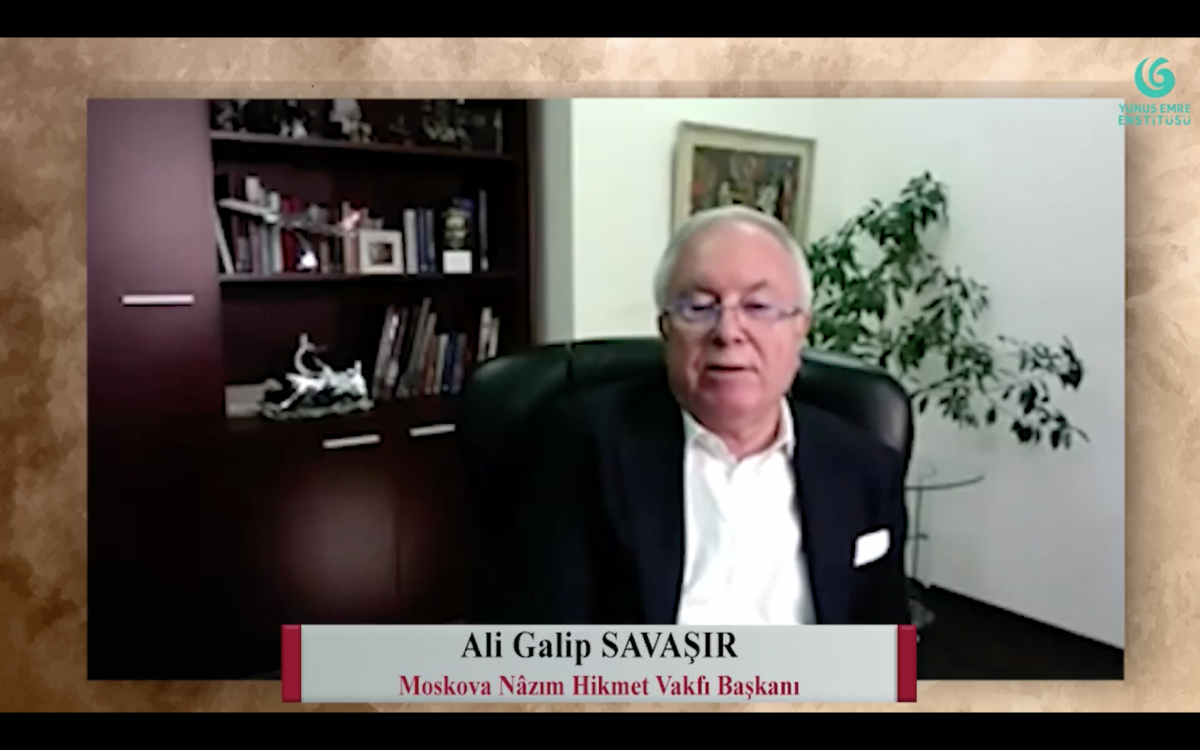 President of Moscow Nâzım Hikmet Culture and Art Foundation Ali Galip Savaşır delivered a speech in the event. He said “Lots of love from Nâzım’s second homeland, Moscow. We are celebrating Nâzım Hikmet’s 119th birthday and starting off the new year with hope. Fortunately, you are Turkey’s child, Nâzım Hikmet. As Turkish people living in Moscow, we commemorate Nâzım Hikmet every year on his death anniversary, June 3.
President of Moscow Nâzım Hikmet Culture and Art Foundation Ali Galip Savaşır delivered a speech in the event. He said “Lots of love from Nâzım’s second homeland, Moscow. We are celebrating Nâzım Hikmet’s 119th birthday and starting off the new year with hope. Fortunately, you are Turkey’s child, Nâzım Hikmet. As Turkish people living in Moscow, we commemorate Nâzım Hikmet every year on his death anniversary, June 3.
YUNUS EMRE INSTITUTE ORGANIZES COMMEMORATION
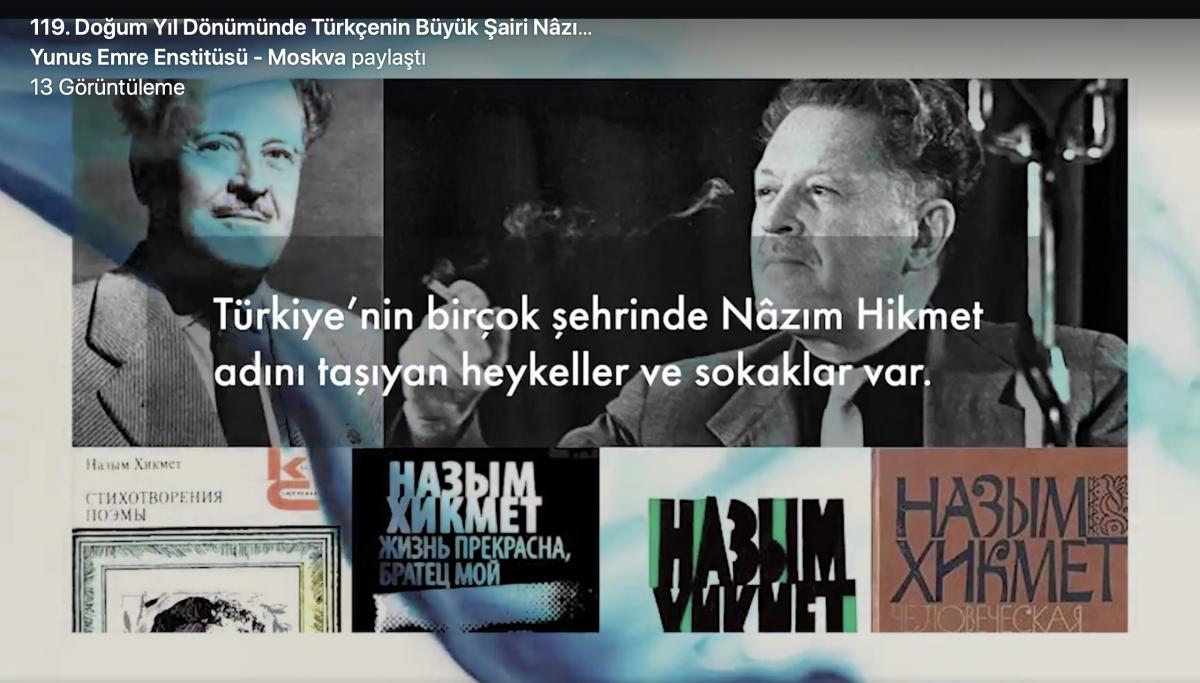
Savaşır also stated that the commemorations are organized since 1999, and became even more wide spread after establishing the Nâzım Hikmet Commemoration Committee. He reflected that after all the efforts, the commemorations are now organized by Moscow Nâzım Hikmet Foundation founded in 2019. Savaşır uttered the following words:
“Yunus Emre Institute was a dream come true in the recent years in Moscow. Nâzım Hikmet’s birthday commemorations were starting to become more relevant with the support of Nâzım Hikmet Library and us because Russians celebrate, commemorate, and remember their marriages on birthdays rather than death dates. Nâzım’s birthday is on January 15. Since it coincides with the holiday season, it became a tradition for us to celebrate it on January 25. This year, we decided to go for an online celebration due to the pandemic. This is organized by Moscow Nâzım Hikmet Foundation with the contribution of Yunus Emre Institute, Moscow State University, and Nâzım Hikmet Library. We extend our gratitude to our Ambassador Mr. Mehmet Samsar, who supported us greatly, to Yunus Emre Institute, to Moscow State University, to Prof. Dr. Ömer Özkan, to the teaching assistants at Moscow State University, to my dear elder composer, writer and the honorary president of our foundation Zülfü Livaneli, and to Turkey’s true Sultan (Queen) Türkan Şoray. I would like to thank our students at the Moscow Nâzım Hikmet Foundation Student Committee. I am proud of them.”
In his message, Moscow Ambassador Mehmet Samsar said:
|
Moskova Büyükelçisi Mehmet Samsar |
“It is amiable for me to attend to Nâzım Hikmet’s 119th birthday commemoration. Nâzım Hikmet marked our literature with his poetry as well his devotion to his homeland. He is an inspiration to the young generation.
Moskova Büyükelçisi Mehmet Samsar: Nâzım Hikmet marked our literature with his poetry as well his devotion to his homeland. He is an inspiration to the young generation. What makes Nâzım Hikmet immortal is young generation getting to know his works. |
What makes Nâzım Hikmet immortal is young generation getting to know his works. Even though he passed away in 1963, there are very few people who are not affected or inspired by his works. He touched our lives with the love, breakups, ideas, happiness, dreams, and disappointments in his works. We express our thanks to the Russian people, who presented their sincerity for Nâzım Hikmet.”
“NÂZIM HİKMET BECAME A SOUL BRIDGE BETWEEN TURKEY AND RUSSIA”
Ambassador Mehmet Samsar continued his speech:
“Nâzım Hikmet became a soul bridge between our country and Russia thanks to his works about the years he spent in Russia and his love for his homeland. We organize this event every year in Moscow with the contribution of honorable artists and academicians, and this is the most important indicator for Nâzım Hikmet’s memory. I express my gratitude to Yunus Emre Institute, Moscow Turkish Culture Center, and Moscow Nâzım Hikmet Foundation, who made this event possible despite the restrictive conditions due to the pandemic. I would like to end my words with a few lines from one of Nâzım Hikmet’s poems, which I believe touches us more than ever in these hard times.”
“Life is no joke,You shall live with absolute seriousness,Like a squirrel,Expecting nothing more than living,All you’ll ever have to do is to survive.You shall live with absolute seriousness,With such a tremendous seriousness that,Even with your arms tied, your back against the wall,Or with your huge glasses on your eyes,You’ll be able to die for humanity,With your white coat in a laboratory,For people you’ve never even seen,Even though nobody forced you to,Even though you know that.Living is the best.You shall live with absolute seriousness,You'll grow olive trees even when you're seventy,And not because your kids love olives or anything, But because even if you fear it, you don’t believe in
|
ZÜLFÜ LİVANELİ: NÂZIM IS OUR BOTH PUSHKIN AND GOGOL
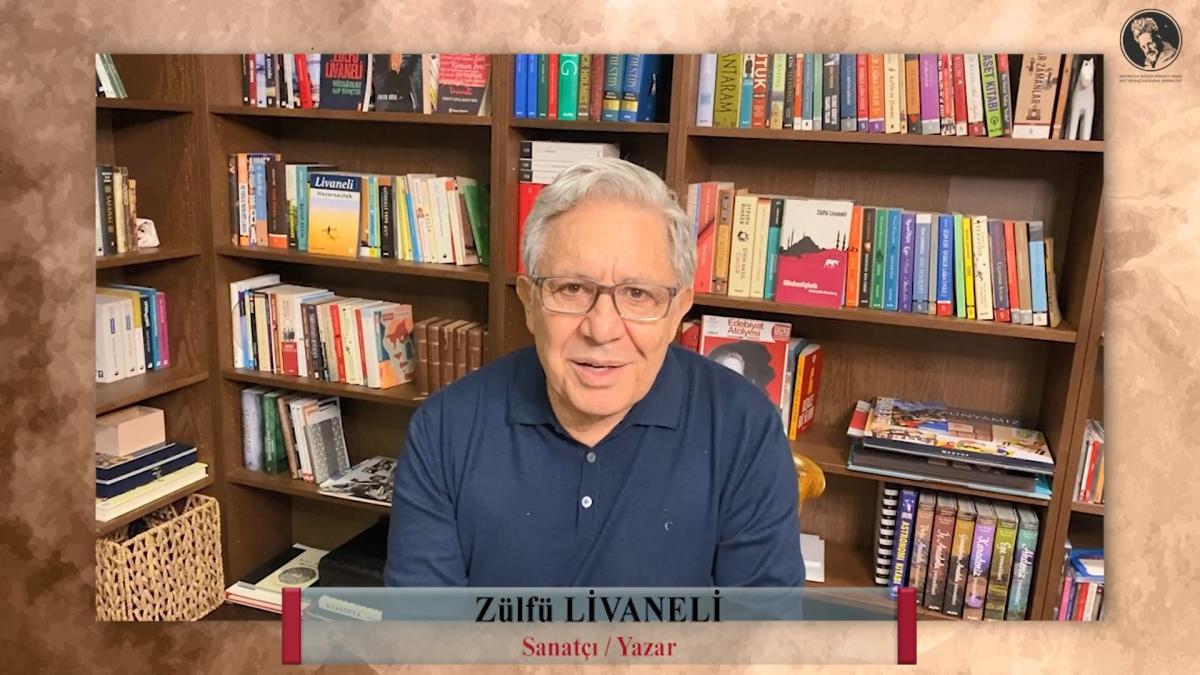
Artist, writer and the honorary president of Nâzım Hikmet Foundation Zülfü Livaneli stated during the event:
“We already know that Nâzım Hikmet is a great poet. We owe a debt of gratitude to him for his contributions to our world. He is a great poet and, as I call him, the main artery of our poetry. He really is. Without him, Turkish poetry would be very different than what it is today.
Zülfü Livaneli: Pushkin created the language of literature. Gogol created the topic. Nâzım Hikmet, on the other hand, created both of them. In our litterature Nâzım our both Pushkin and Gogol |
Nâzım Hikmet is a poet who recreated the poetry, the language, and the narrative in his own era. We love him. We call him the main artery of our poetry. But why? We have to focus on that now. There’s no need to praise Nâzım. Everyone in the world adores him. Pablo Neruda loves him. Garcia Lorca loves him. We all love him. That takes the cake. However, we should think about why everyone loves him. Pushkin is very important in Russia, we know that. Pushkin recreated the language and the literature. Gogol is also very important, as Dostoyevsky said “We all came out of Gogol’s overcoat.” He influenced Dostoyevsky, Tolstoy and Chekhov with his perspective on the little person in St. Petersburg and the events he created. Dostoyevsky refers to his short story Overcoat. Now, I’m talking about two different things. Pushkin created the language of literature. Gogol created the topic. Nâzım Hikmet, on the other hand, created both of them. He brought the topic, the perspective on the world, compassion, which I think to be a great secret of the 19th century Russian novels, his devotion to the people he writes about, and his longing for a more beautiful and fairer world. On the other hand, he also adopted the new techniques by Yesenin, Mayakovski, even Vysotsky. Therefore, he our both Pushkin and Gogol.”
Zülfü Livaneli stated that there are many great poets who influenced the Turkish poetry but that Nâzım Hikmet has a special place in it. Livaneli continued his speech:
“Yahya Kemal is also another great poet. You'll fall in love with his every line. They are crystal clear but nothing like Nâzım Hikmet’s. Because they did not create the same degree of innovation. Those writers and poets who can shape their own languages are very important in the world, like Walt Whitman and Edgar Allan Poe. There are people who create new things and transform the language. That’s what Nâzım Hikmet did. In addition, he managed to analyze the three main topics regarding our country’s identity crisis. Within this context, he is a political model for Turkey, as well. He was born as a son of an Ottoman pasha. Firstly, he wrote poets to Rumi, a 13th century Anatolian scholar. He knows his way around Aruz and Divan poetry (types of Turkish poetry). He learned the names of all French poets by heart since he speaks French. He learned folk poetry by heart when he was imprisoned. He knows Turkish folk songs by heart. He is a great poet and a great transformer for he managed to unify these three. I started to compose his poems by the age of 20. I discovered this after I composed more than 20 of his poems and I said “I have to use these three in the music, as well.” Otherwise, one cannot compose Nâzım Hikmet. We have Nâzım Hikmet on our literary flag. With his stance, ideals, theories, and contribution to the poetry. Happy birthday!”
TÜRKAN ŞORAY: YOU ARE ALWAYS IN OUR HEARTS
Türkan Şoray, also known as the Sultan (Queen) of Turkish cinema, said:
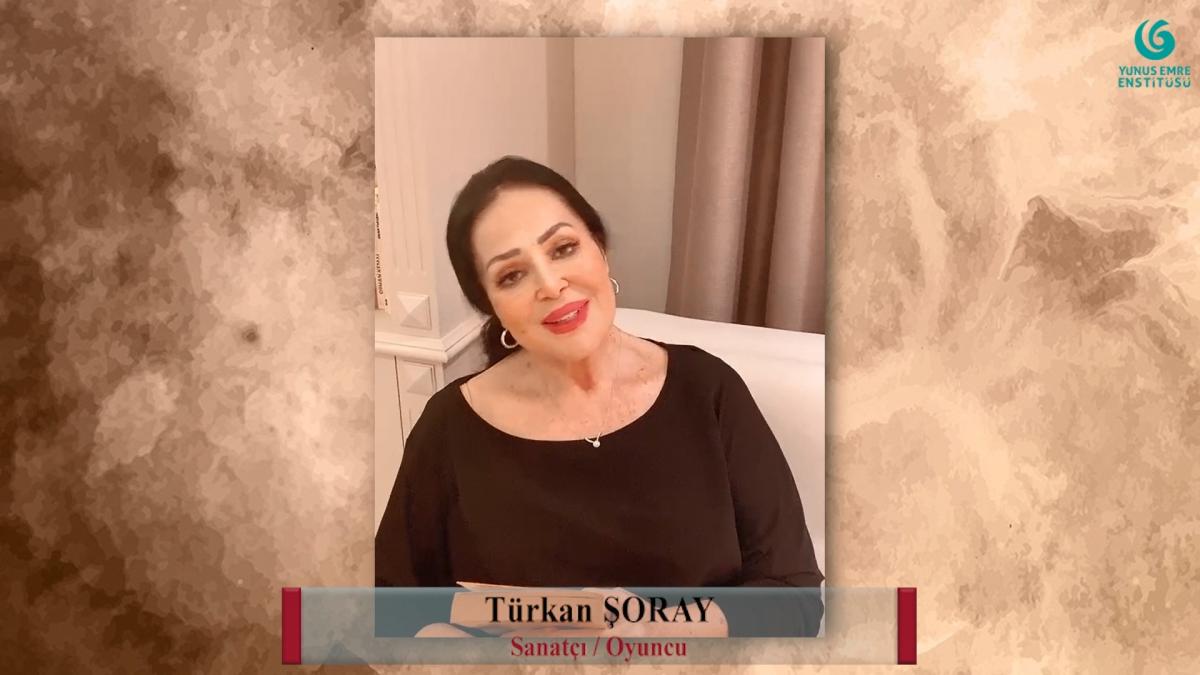
““Nâzım Hikmet is a unique poet who handles longing and love for home in the best way. We love your devotion to your homeland and your own people. You are always among us. Happy birthday. You are always in our hearts.”
PROF. DR. ÖMER ÖZKAN: NÂZIM IS THE BRIDGE BETWEEN TURKEY AND RUSSIA
President of Moscow Yunus Emre Institute Prof. Dr. Ömer Özkan stated:
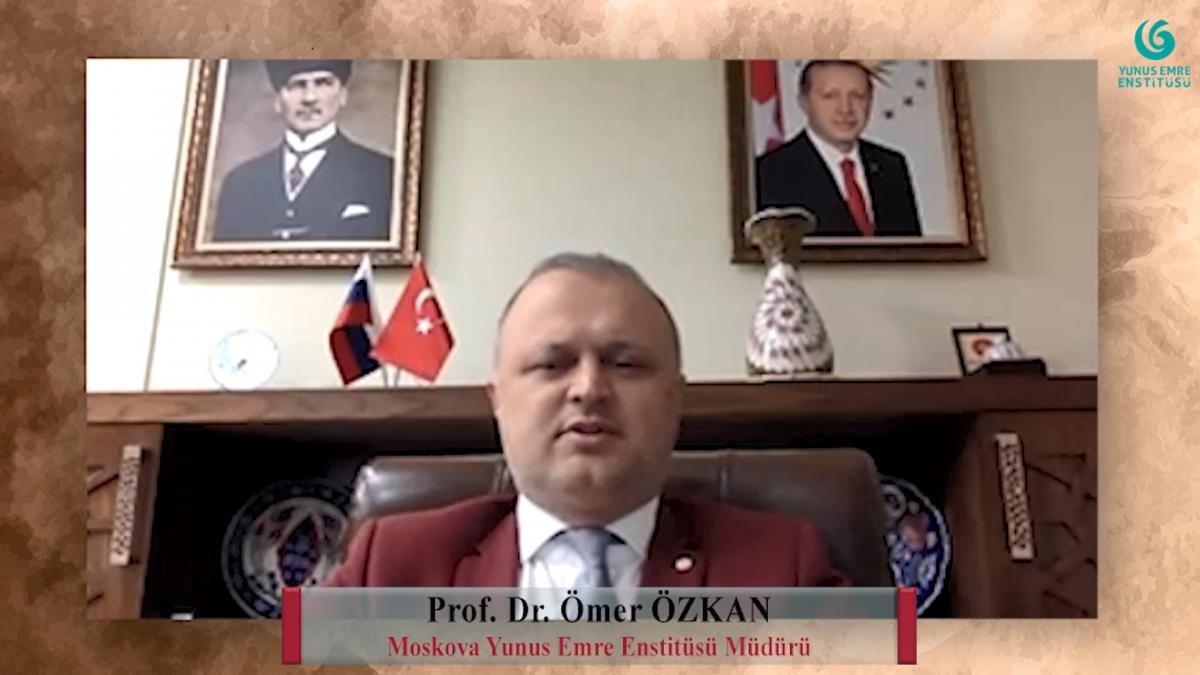
“Languages and cultures brewed together throughout the history and reach high levels of language and culture. There is no doubt that poets and artists play an important role in this. I think we should think of Nâzım in the same way. He is a prominent poet who ascended Turkish language. Our language and we owe a lot to him in this regard.
Prof. Dr. Ömer Özkan: Languages and cultures brewed together throughout the history and reach high levels of language and culture. There is no doubt that poets and artists play an important role in this. I think we should think of Nâzım in the same way. |
We know that a poet can use the language in the best way, but a great poet can use the language to its fullest. We see the fullest of Turkish in Nâzım’s poems. We see the culture and the richness and power of poetry. Poets and artist play another important role in terms of unification. Their works unify what otherwise remain apart. This what happens here and now. Nâzım unified us, like he does every year. He is a common value of Russia and Turkey. We commemorate such people as bridges. I, hereby, commemorate him once more on his 119th birthday, and would like to thank Nâzım Hikmet Library for their support and collaboration. It is thanks to them that we can commemorate Nâzım together every year. Thank you. I heard that Library Manager Ms. Galina Sudyina was feeling under the weather. I hope she gets better soon. I express my gratitude to Moscow State University, to Nâzım Hikmet Foundation, and to our young students.”
DR. DARIA ZHIGULSKAYA: NÂZIM HİKMET'S FATE IS VERY IMPORTANT FOR BOTH TURKEY AND RUSSIA
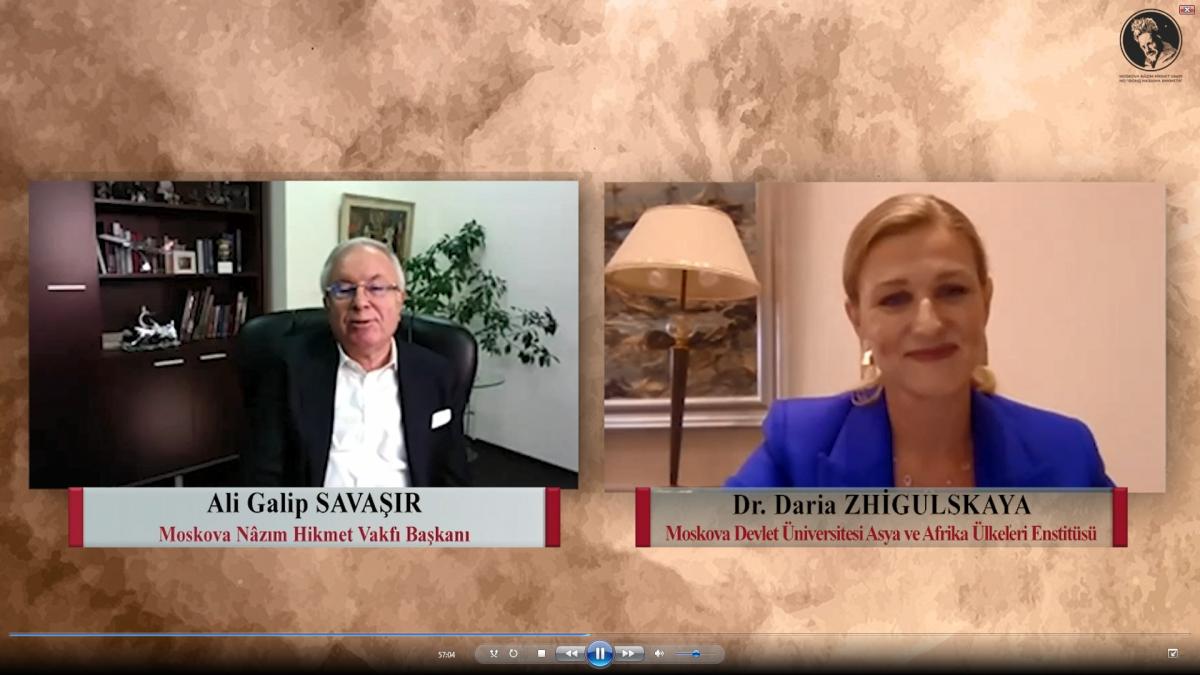
Dr. Daria Zhigulskaya from Moscow State University Asian and African Countries Institute made a presentation and underlined the importance of Nâzım Hikmet for the relation between Turkey and Russia. Dr. Zhigulskaya said:
“Firstly, I would like to express how glad I am for attending this event, thanks to our friend Ali Galip Savaşır, about the great poet, writer, philosopher, and humanist Nâzım Hikmet’s birth and death anniversaries. It is quite pleasing to know that this tradition is developing, gaining popularity, and especially drawing the attention of the youth over the years.
Dr. Daria Zhigulskaya: I won’t be making a scientific presentation today. It is flattering that Russian and Turkish scientists are here today, who are interested in different eras of Nâzım’s life and conducted research about lesser-known topics about him. Nâzım Hikmet has a special place in Russian-Turkish relations. There is no other figure who present the invisible ties and the close mentalities between the two peoples, despite the differences we see at first sight. |
I won’t be making a scientific presentation today. It is flattering that Russian and Turkish scientists are here today, who are interested in different eras of Nâzım’s life and conducted research about lesser-known topics about him. I won’t be making a scientific presentation today. It is flattering that Russian and Turkish scientists are here today, who are interested in different eras of Nâzım’s life and conducted research about lesser-known topics about him. Nâzım Hikmet has a special place in Russian-Turkish relations. There is no other figure who present the invisible ties and the close mentalities between the two peoples, despite the differences we see at first sight. Russia and Turkey have been neighbors for centuries. This geographical closeness brought with it the interaction of the two countries’ history and culture. However, as the leader of the Russian Turcology field Vladimir Gordlevsky once said, very few things were known in the first half of the 19th century despite many contacts being made in different areas. In time, Russia’s interest in Turkey in her foreign policy and getting to know her neighbor turned into the desire to learn about her neighbor’s history, language, and culture. Thus, a new branch of science, Turcology, emerged in Russia in the second half of the 19th century. Filled with very hard times, the 20th century opened a new page for Russian-Turkish relations. The said relations were never linear. On the contrary, there were many ups and downs. Nâzım, the great poet who tied our countries’ fate together, lived and created his works during that era. Nâzım Hikmet has a special place in Russian - Turkish relations. There is no other figure who present the invisible ties and the close mentalities between the two peoples, despite the differences we see at first sight. The Soviet Union became the second home for him. Russian became his second mother tongue. He was a great humanist, as well as a great patriot. He stood against violence, and defended peace and fraternity. He still teaches us to be human and stay human under any circumstance.” Russia and Turkey have been neighbors for centuries. This geographical closeness brought with it the interaction of the two countries’ history and culture. However, as the leader of the Russian Turcology field Vladimir Gordlevsky once said, very few things were known in the first half of the 19th century despite many contacts being made in different areas. In time, Russia’s interest in Turkey in her foreign policy and getting to know her neighbor turned into the desire to learn about her neighbor’s history, language, and culture. Thus, a new branch of science, Turcology, emerged in Russia in the second half of the 19th century. Filled with very hard times, the 20th century opened a new page for Russian-Turkish relations. The said relations were never linear. On the contrary, there were many ups and downs. Nâzım, the great poet who tied our countries’ fate together, lived and created his works during that era. Nâzım Hikmet has a special place in Russian - Turkish relations. There is no other figure who present the invisible ties and the close mentalities between the two peoples, despite the differences we see at first sight. The Soviet Union became the second home for him. Russian became his second mother tongue. He was a great humanist, as well as a great patriot. He stood against violence, and defended peace and fraternity. He still teaches us to be human and stay human under any circumstance.”
MEMOIRS WITH SUAT DERVİŞ
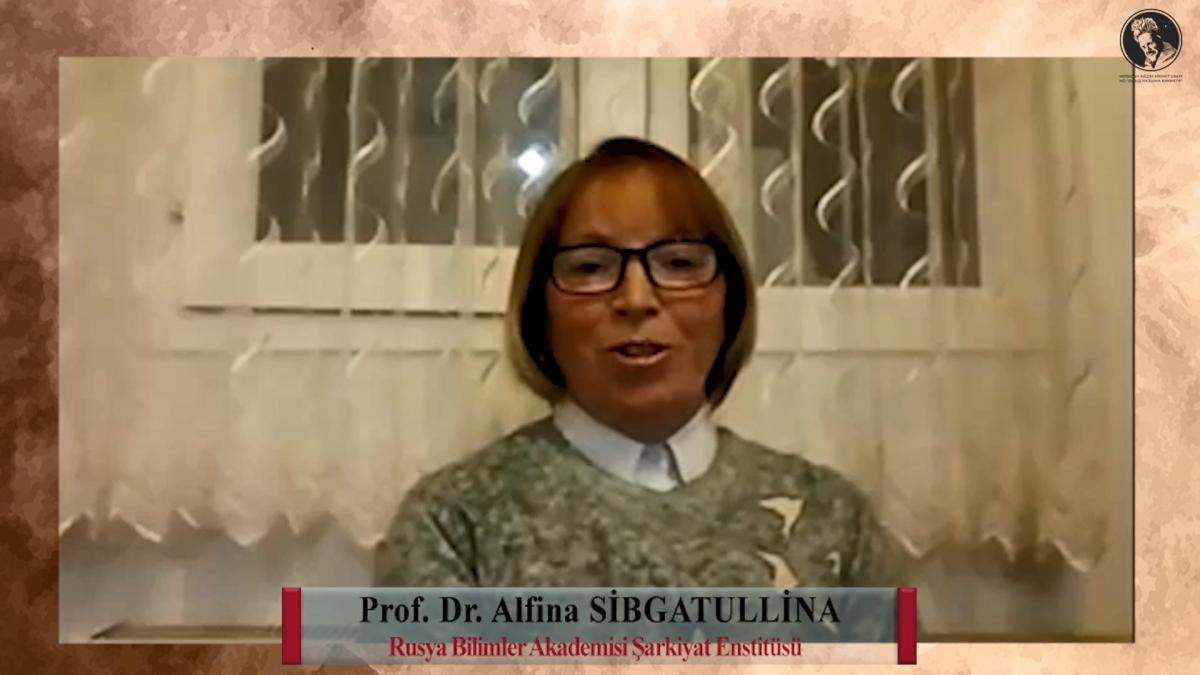 Prof. Dr. Alfina Sibgatullina from Russian Sciences Academy Orientalism Institute shared lesser-known facts about Nâzım Hikmet. Prof. Dr. Sibgatullina talked about Nâzım Hikmet’s relation with Suat Derviş, the first female reporter to be sent to Europe, and one of the founders and the first president of the first media union. Prof. Dr. Sibgatullina stated that Nâzım Hikmet’s platonic love for Suat Derviş is now known by many, for whom Nâzım Hikmet wrote the poem 1920’de Gölgesi. Sibgatullina mentioned that she translated the Nâzım Hikmet biography written by Radi Fish, a Russian Turcologist who contributed greatly to the researching of Turkish classics, and the Fosforlu Cevriye novel by Suat Derviş into Russian.
Prof. Dr. Alfina Sibgatullina from Russian Sciences Academy Orientalism Institute shared lesser-known facts about Nâzım Hikmet. Prof. Dr. Sibgatullina talked about Nâzım Hikmet’s relation with Suat Derviş, the first female reporter to be sent to Europe, and one of the founders and the first president of the first media union. Prof. Dr. Sibgatullina stated that Nâzım Hikmet’s platonic love for Suat Derviş is now known by many, for whom Nâzım Hikmet wrote the poem 1920’de Gölgesi. Sibgatullina mentioned that she translated the Nâzım Hikmet biography written by Radi Fish, a Russian Turcologist who contributed greatly to the researching of Turkish classics, and the Fosforlu Cevriye novel by Suat Derviş into Russian.
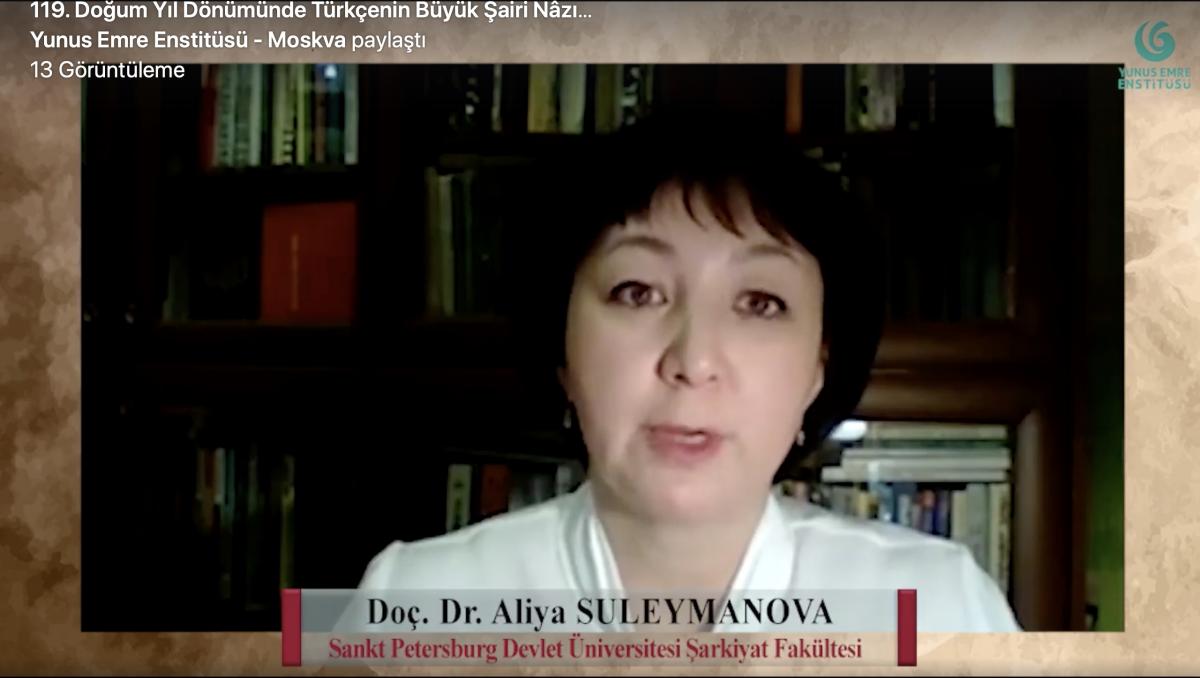
Assoc. Prof. Dr. Aliya Suleymanova from St. Petersburg State University Faculty of Orientalism started by extending her gratitude, and then presented the research Regarding the Cultural roots of Nâzım Hikmet’s Vocal Figurant Metaphor about the poem 1935 - Satire Essays for a Provoker.
“THE PHILOSOPHY OF IMAGE IN NÂZIM HİKMET’S POEMS” WITH DR. NİLAY ÖZER
Dr. Nilay Özer, a poet and academician at Beykoz University, made a presentation titled “The Philosophy of Image in Nazim Hikmet’s Poems” and said:
DR. NIKOLAY LISENKOV: NÂZIM HİKMET STRIKES AS A GENIUS AND PEACEFUL MAN OF LETTERS
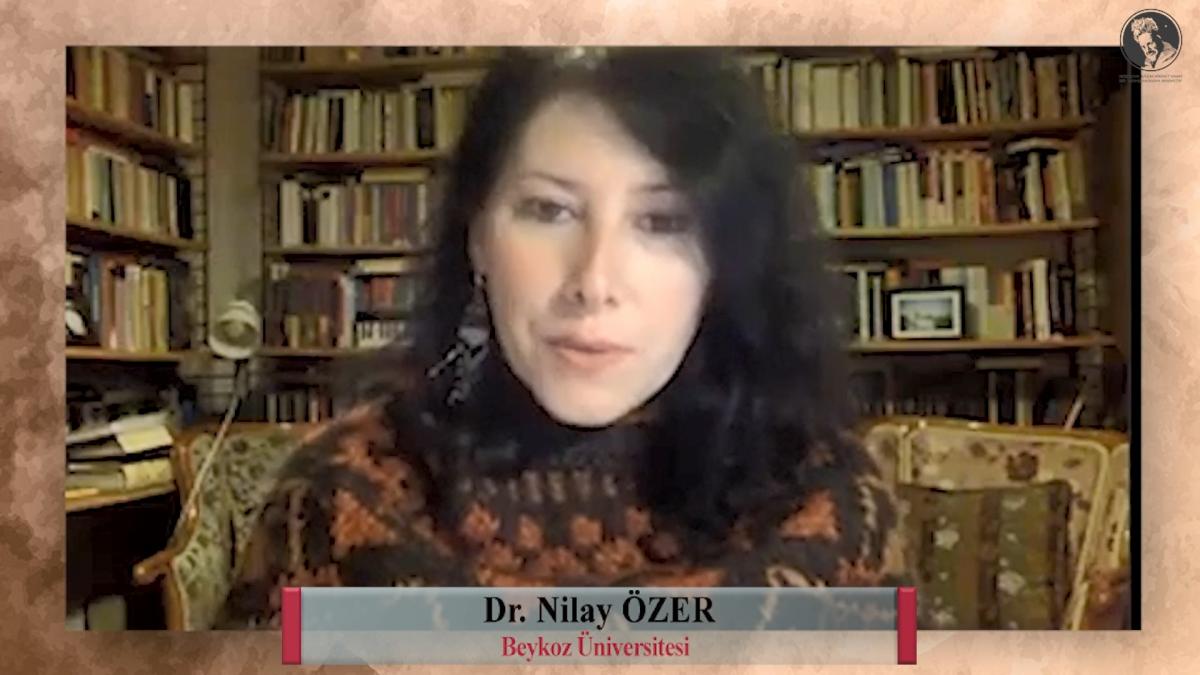 “Young Nâzım’s poetry entered an era of futurist-constructivist influence after he went to the Soviet Union. He gained experimentalist, modernist, and avant-garde characteristics in the creative, experimentalist, and artistic environment of the Soviet Union during 1920s. Nâzım Hikmet acquired his own style of poetry from the modern extensions of the Divan poetry tradition or the Hececi (Syllablists) poetry, and changed his style with the image production and the areas and functions in which he can use these images. Here, the poet discovers the person who accessed the world’s knowledge and the experience of a person filled with images. In other words, the images he sees as sociological, historical, and aesthetical data make it possible for him to analyze poetry sociologically, historically, and aesthetically. Nâzım Hikmet’s images are popular among researchers.”
“Young Nâzım’s poetry entered an era of futurist-constructivist influence after he went to the Soviet Union. He gained experimentalist, modernist, and avant-garde characteristics in the creative, experimentalist, and artistic environment of the Soviet Union during 1920s. Nâzım Hikmet acquired his own style of poetry from the modern extensions of the Divan poetry tradition or the Hececi (Syllablists) poetry, and changed his style with the image production and the areas and functions in which he can use these images. Here, the poet discovers the person who accessed the world’s knowledge and the experience of a person filled with images. In other words, the images he sees as sociological, historical, and aesthetical data make it possible for him to analyze poetry sociologically, historically, and aesthetically. Nâzım Hikmet’s images are popular among researchers.”
DR. NIKOLAY LISENKOV: NÂZIM HİKMET STRIKES AS A GENIUS AND PEACEFUL MAN OF LETTERS
|
Dr. Nikolay Lisenkov from Russian Social and Political History State Archive made a presentation about Nâzım Hikmet. |
Dr. Nikolay Lisenkov from Russian Social and Political History State Archive said in his presentation that Nâzım Hikmet is a genius and a versatile person. He also stated that Nâzım Hikmet has a political aspect in addition to being a poet and a philosopher, but that he strikes as a genius and peaceful man of letters.
The event ended with poems by Nâzım Hikmet. It was watched by a big audience on the social media. Nâzım Hikmet’s birthday is actually on January 15, but since it coincides with the holiday season in Russia, the celebrations are organized on January 25.
The event can be watched via Moscow Yunus Emre Institute Facebook page.


